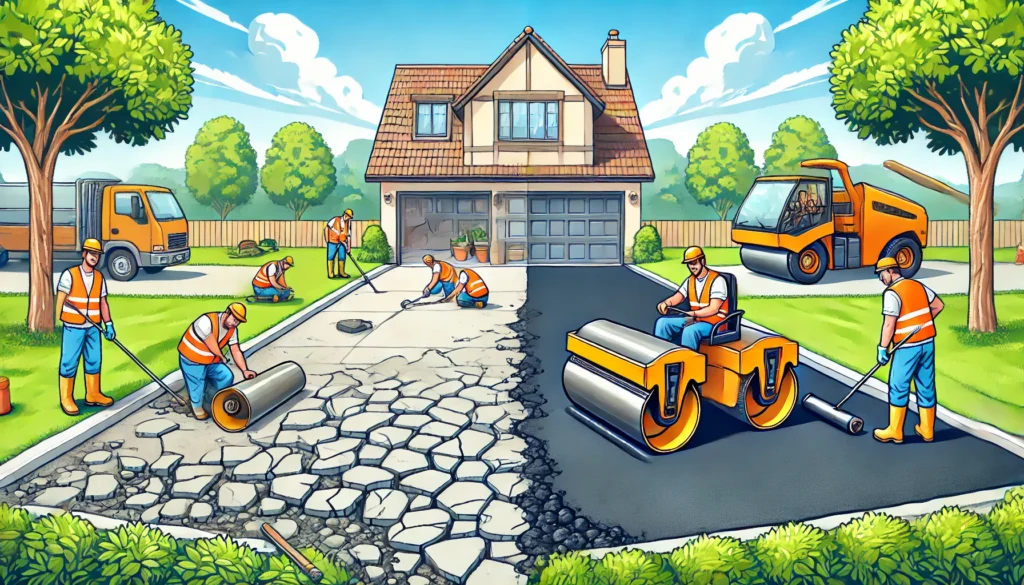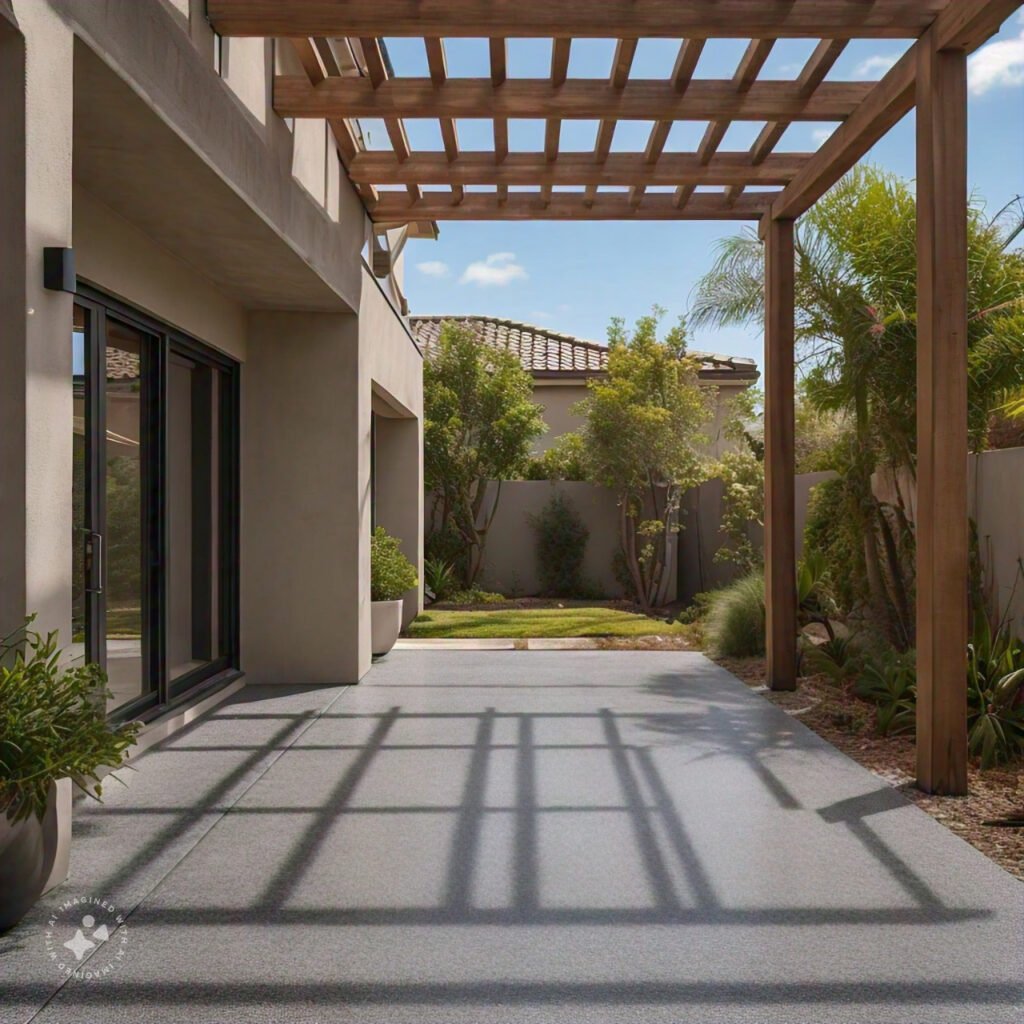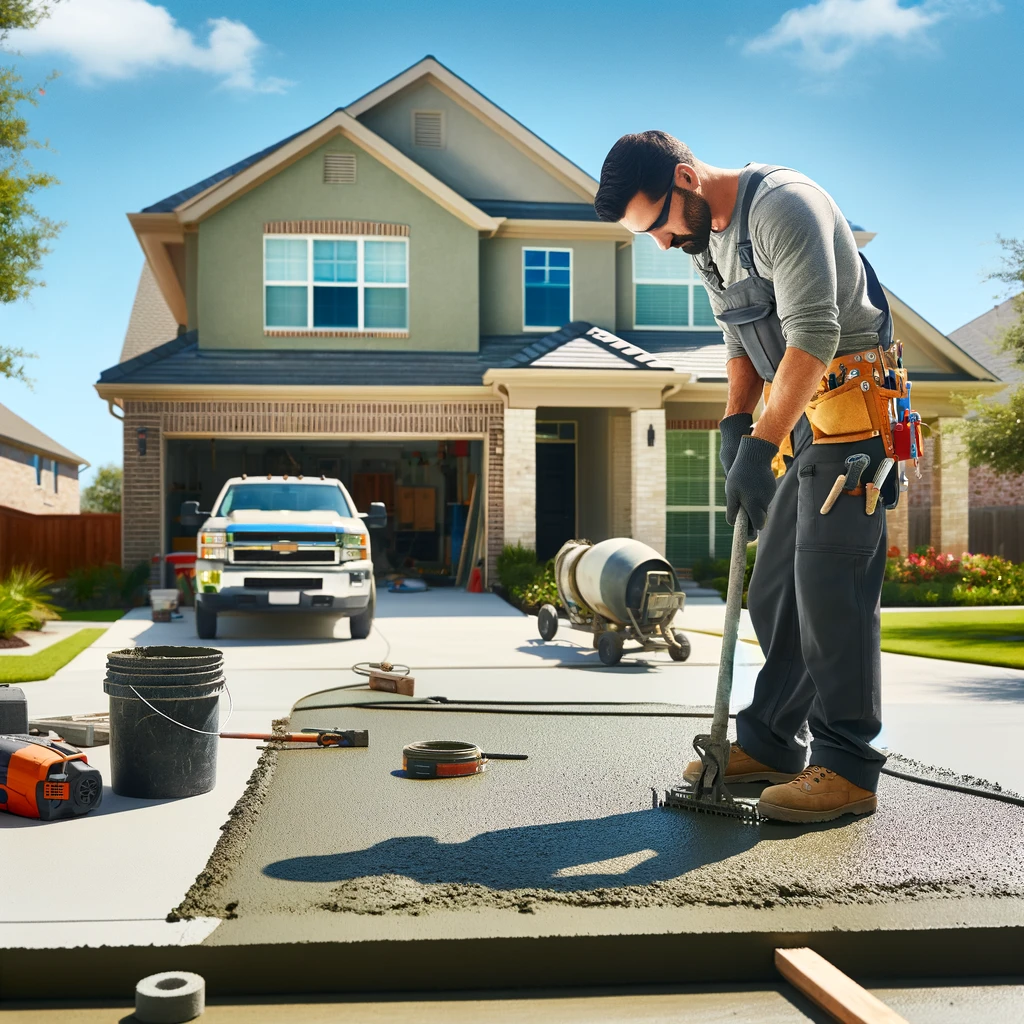Driveway Resurfacing
Is your driveway showing signs of wear and tear? Many homeowners face the dilemma of whether to repair, resurface, or completely replace their driveway. With the right resurfacing technique, you can restore its appearance and functionality without the cost of a full replacement. In this comprehensive guide, we’ll explore the costs of driveway resurfacing, factors influencing pricing, and expert tips to help you make an informed decision.
What is Driveway Resurfacing?
Driveway resurfacing involves adding a new layer of asphalt or concrete over an existing surface. This process repairs minor cracks, smooths out uneven areas, and extends the driveway’s lifespan. It’s a cost-effective alternative to complete driveway replacement, offering the look and feel of a new driveway without the hefty price tag.
Cost of Driveway Resurfacing
The cost of driveway resurfacing can vary significantly based on several factors, including the driveway’s size, material used, and condition of the existing surface. On average, homeowners can expect to pay between $1 to $3 per square foot for asphalt resurfacing. For concrete driveways, costs may range from $3 to $7 per square foot, depending on finish options and additional treatments.
Factors That Affect Driveway Resurfacing Costs
Several variables influence the overall cost of resurfacing:
- Condition of the Existing Surface
Cracks, potholes, and structural issues can increase labor and material costs as repairs must be made before resurfacing. - Driveway Size and Layout
Larger driveways or those with complex shapes will require more materials and labor, raising the project’s cost. - Materials and Finishes
The quality of the new asphalt or concrete, as well as optional finishes like stamping or texturing, can affect pricing. - Additional Features
Driveways with intricate edges, curbs, or integrated drainage systems require additional work, impacting cost.
Tips for Choosing a Driveway Resurfacing Contractor
Selecting the right contractor is crucial for a successful project. Here are a few tips:
- Get Multiple Quotes: Request estimates from at least three reputable contractors to compare prices and services.
- Check References and Reviews: Look for reviews online and ask for references to gauge the quality of previous work.
- Verify Credentials: Ensure the contractor is licensed, insured, and specializes in driveway resurfacing.
- Detailed Contract: Always get a written agreement detailing the materials, timeline, and costs involved.
Asphalt vs. Concrete Driveway Resurfacing: Which is Right for You?
When deciding between asphalt and concrete resurfacing, consider the following:
- Asphalt: Ideal for colder climates, more affordable, and easy to repair, but requires periodic sealing.
- Concrete: More durable, offers various finish options, and less maintenance, but costs more upfront.
How to Maintain Your Resurfaced Driveway
Proper maintenance will extend the lifespan of your resurfaced driveway:
- Sealcoating: For asphalt driveways, apply a seal coat every 2-3 years to protect against cracks and water damage.
- Regular Cleaning: Sweep away debris and remove oil stains to keep the surface looking fresh.
- Prompt Repairs: Address minor issues like small cracks before they worsen.
Conclusion
Driveway resurfacing can rejuvenate the look and performance of your driveway at a fraction of the cost of a replacement. By understanding the costs, factors involved, and choosing a reliable contractor, you can achieve a durable and aesthetically pleasing result. Whether you choose asphalt or concrete, proper maintenance is key to maximizing your investment.
FAQs
- What is the average cost of resurfacing a driveway?
The average cost ranges from $1 to $7 per square foot, depending on materials and project complexity. - How long does driveway resurfacing last?
With proper maintenance, a resurfaced driveway can last up to 15 years for asphalt and 20 years for concrete. - Can I resurface a driveway myself?
While DIY kits are available, professional resurfacing ensures a high-quality, durable finish. - What is the best time of year to resurface a driveway?
Late spring through early fall is ideal, as warmer temperatures allow for better curing. - How can I maintain a resurfaced concrete driveway?
Regular sealing, cleaning, and prompt repair of any cracks will prolong its lifespan.


